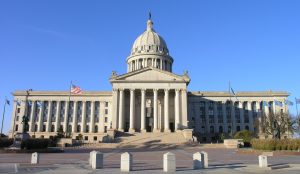When Americans are in the midst of trying to decide who should lead them from the White House for the next four years, those currently in power don’t always focus a lot of attention on the legislation and regulation of nonprofit organizations.
Still, 2000 saw its share of activity. Here’s a thumbnail sketch of some national, state and local-level challenges.
The Joint Committee on Taxation, the people who helped bring about the restructured Internal Revenue Service, issued recommendations calling for greater disclosure by nonprofits. Among the recommendations was a call to revise the Form 990. The IRS was also encouraged to speed up its acceptance of electronically transferred documents.
The IRS and the United Cancer Council ended their long-standing tax exemption impasse after the defunct Indianapolis-based organization agreed to accept revocation of tax-exempt status for 1986-89, with reinstatement from 1990 forward. The IRS agreed to settle its claims for $70,000, though it had estimated much more was owed.
The National Association of State Charity Officials released drafted guidelines for regulating online charitable solicitations. The Charleston Principles offer NASCO’s guidelines for states on when charities and fundraisers should be required to register with regard to online solicitations.
Shhh. Don’t tell anyone, but privacy has remained a hot topic at the federal level even though little was actually decided. The U.S. Department of Health and Human Services has the ball in its court right now, as the battle over health care institutions’ use of names of grateful patients threatens to change the way those organizations fundraise.
The Clinton Administration introduced legislation to restrict the use of personal financial information by corporations. At press time, the lame duck Congress had not passed anything related to this legislation, and no decision was expected this year.
Things were a little more clear in Canada, however, where the Ministry of Industry announced that the Personal Information and Electronics Document Act will go into effect on Jan. 2. The bill regulates the collection, use, access to and distribution of personal information, including the "selling, bartering, or leasing of donor, membership or other fundraising lists."
The U.S. Supreme Court declined to hear a case between American Target Advertising and Utah’s Department of Consumer Affairs. The denial meant fundraisers lost their battle to remove all registration requirements, though the state’s $25,000 was declared unconstitutional by fee the circuit appeals court.
A similar case, between Pinellas County, Fla., and Washington, D.C.-based American Charities for Reasonable Fundraising Regulation, received a split decision from the 11th Circuit Court of Appeals. The appeals court allowed a registration ordinance to stand but determined that the lower court had not addressed whether professional fundraising consultants have enough "minimum contact" within the county for the local jurisdiction to require registration.
IRS Tax Code Section 527 groups became an election year football, as their ability to spend money on campaign-related activities with few disclosure requirements captured the public eye. As originally written, House and Senate amendments covering the Section 527 groups would have covered 501(c)(4) groups as well as unions and business leagues. Though a thinner version of the bill was eventually signed by the president, covering only the Section 527 groups, donors of $200 or more per year are required to be disclosed.
YMCAs battled all year to keep tax exemptions for fitness facilities in their buildings. The opposition arose from challenges by the Boston-based International Health & Racquet Sportsclub Association, which supports for-profit health clubs. A challenge to the Shasta, Calif., YMCA was ruled in the Y’s favor by the state board of equalization. In Quincy, Mass., the South Shore Y received summary judgment, with its case dismissed in the Y’s favor. The Tennessee legislature passed a law ostensibly covering all nonprofits that deal in health and human service areas but that noted YMCAs in particular.
There were partial losses, however. In Pennsylvania, the Sewickley Y was assessed tax on 8 percent of its facility, for a portion that was leased to a for-profit company and a higher-paying membership level sparking the assessment. In Milwaukee, a tax levied against the Downtown Y facility was rescinded, with payment in lieu of taxes (PILOT) for city services to the building assessed. In Pittsburgh, no decision had been made in its fitness center taxation case, which also involves PILOT.
Maryland enacted a bill imposing a $25 per month fee for late annual reports. It also extended to council the prohibition on professional solicitors contracting with unregistered charities and likewise keeps organizations from contracting with unregistered solicitors and counsel.
In Connecticut, the state senate raised the threshold for audited financial statements from $100,000 to $200,000 and raised the floor for registration with the state from $25,000 to $50,000 in annual contributions.
Illinois created a freeze of property taxes for certain fraternal organizations, effective on New Year’s Day.
In Tennessee, charitable organizations that want to sell gift annuities must obtain a certificate of authority from the state’s insurance commissioner. The law also requires organizations to maintain a segregated fund for the annuities, and imposes reserve and reporting requirements.











